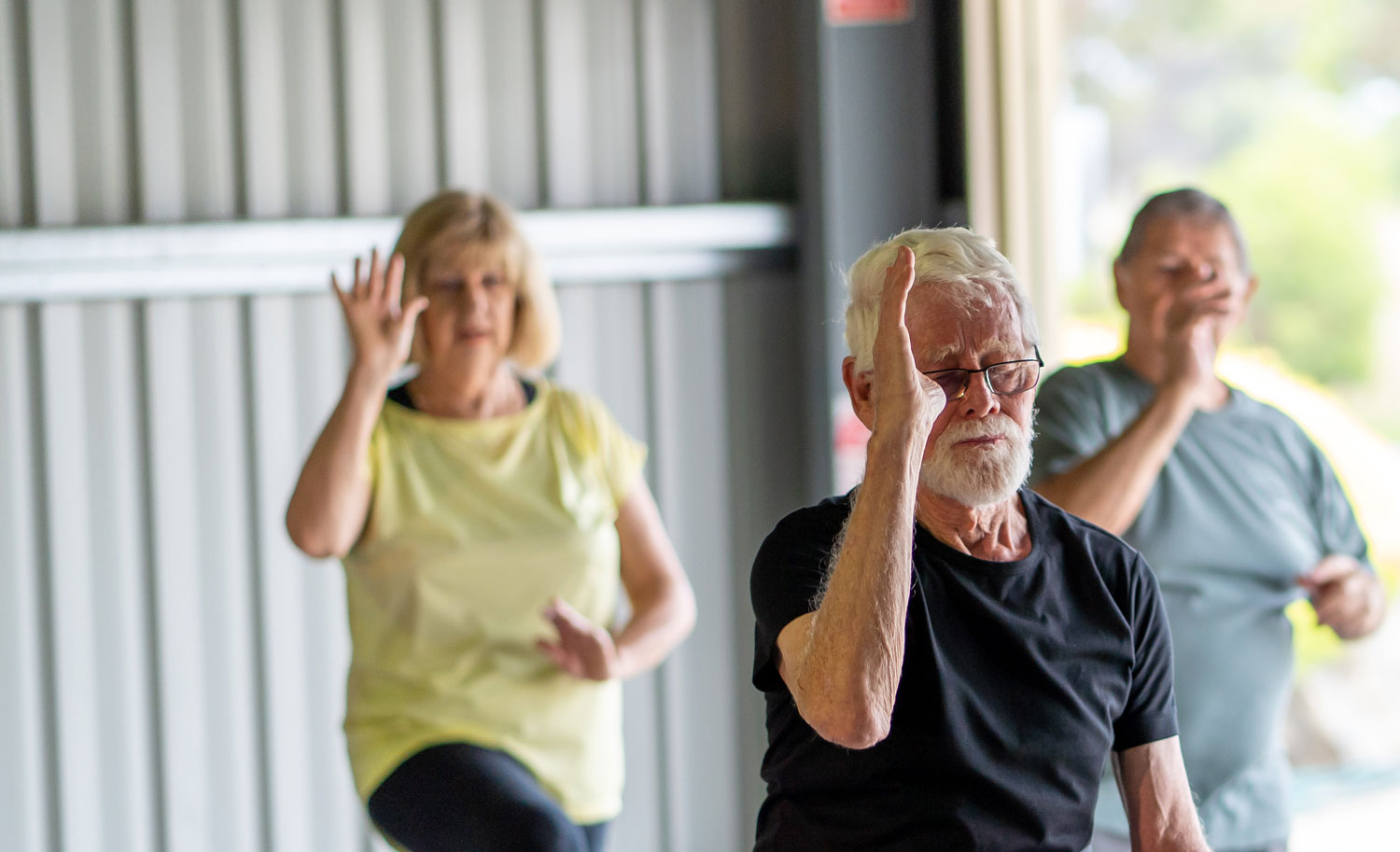Stress is an inevitable part of life, so it’s important to find ways to manage it. Sometimes taking time to move in a slow, focused manner while practicing mindfulness is just what you need, so you may consider trying tai chi.
Tai chi is self-paced and not harsh on the body, making it a good option for you no matter your age or fitness experience.
What is tai chi?
Originating in China, tai chi was first created for self-defense but is now commonly used as a meditative form of gentle exercise. Practicing tai chi involves a constant, flowing motion that allows your mind to relax while your body moves and stretches at its own pace.
How can tai chi help you de-stress?
Tai chi promotes mindfulness through a focus on breathing and movement. It also has physical benefits like improving balance and flexibility.
With this combined focus on the mind and body, studies show that tai chi can significantly reduce depression and anxiety and has a positive impact on a person’s nervous system and mood-regulating hormones.
How do you practice tai chi?
Learning from an instructor is a good way to get the most out of tai chi. An instructor can walk you through techniques and ensure you’re moving in a way that won’t cause an injury. Find out what tai chi classes are offered at your local fitness centers or community centers, and make sure to show up dressed in loose, comfortable clothing so you can move easily.
Reading more about tai chi and watching videos online are other ways you can get started with tai chi.
Other resources for managing stress and anxiety
While tai chi can benefit physical and mental health, you may need additional support. At Valley Oaks Health, we provide various services to help you manage stress and anxiety. Reach out to us today.






